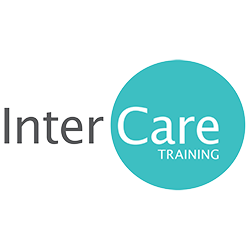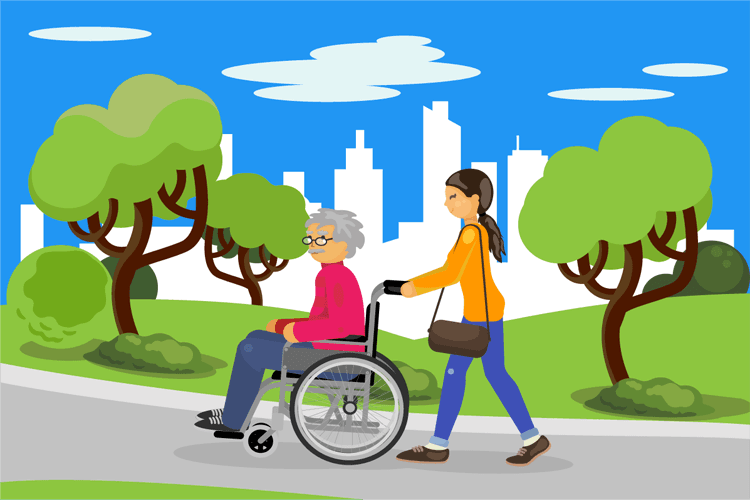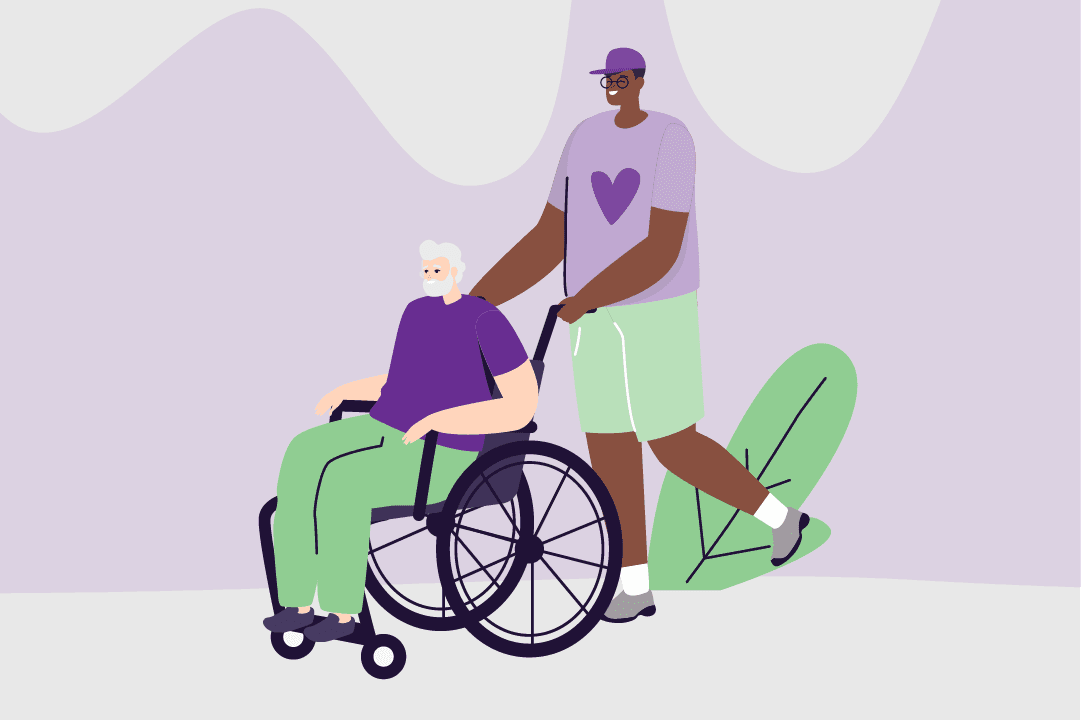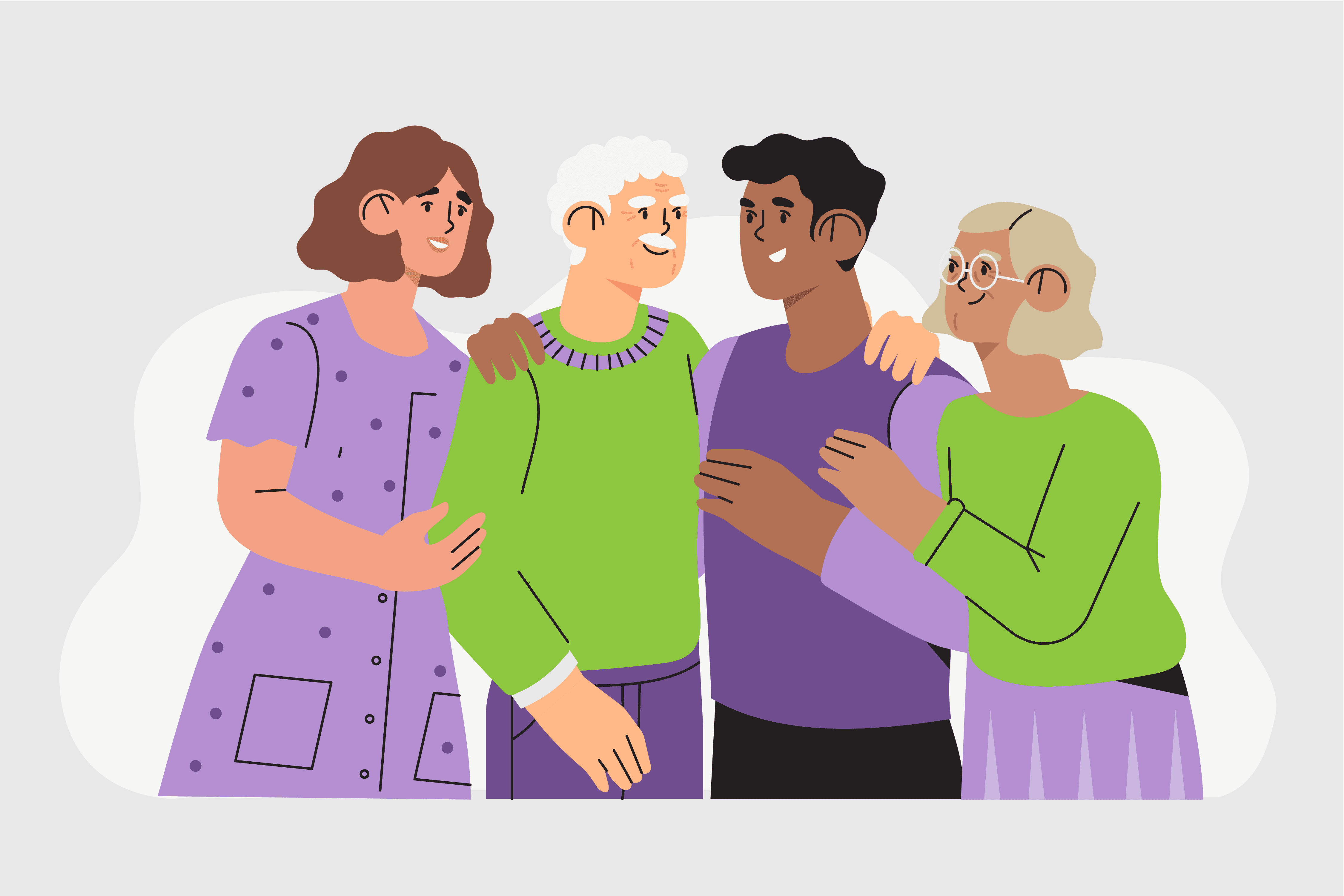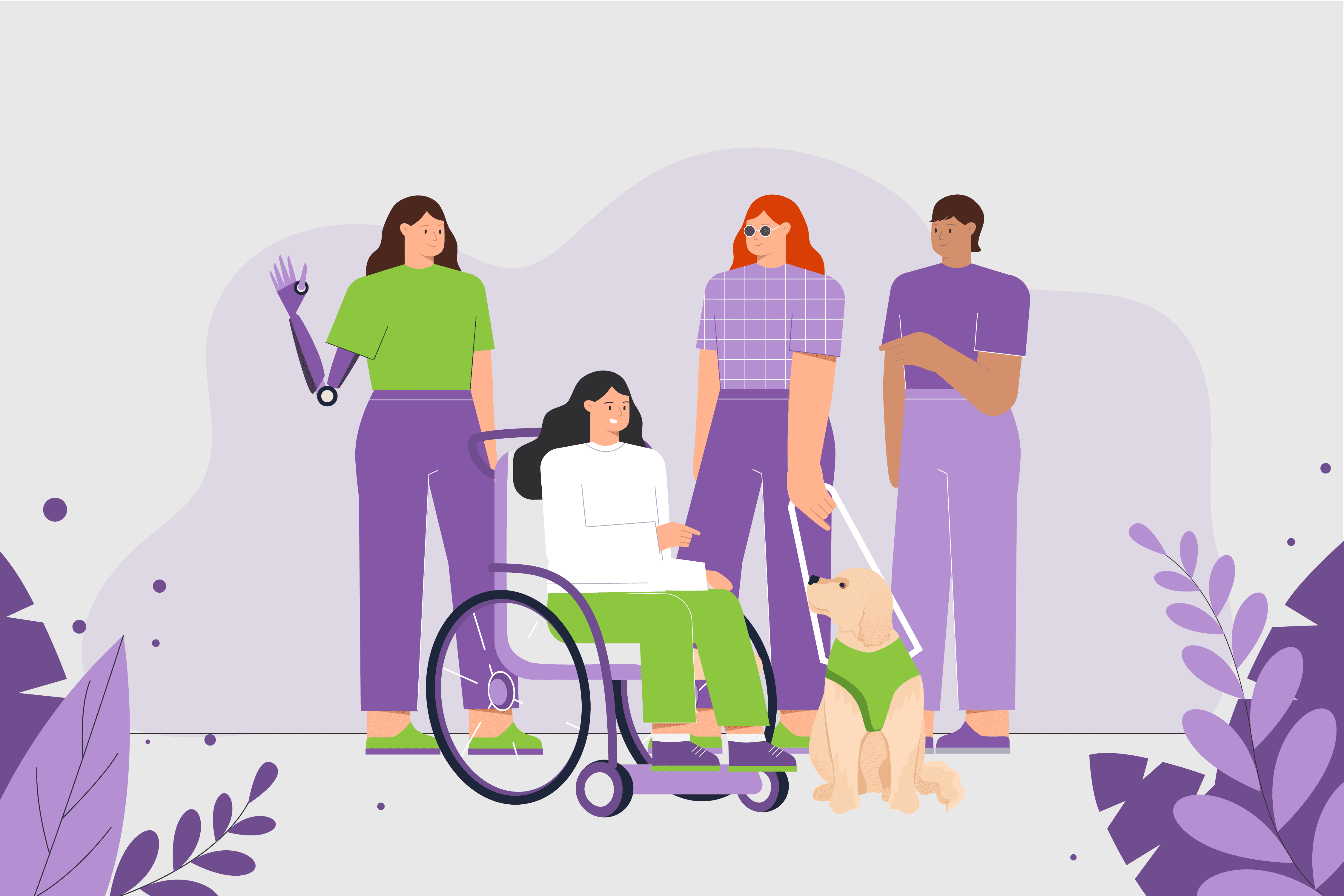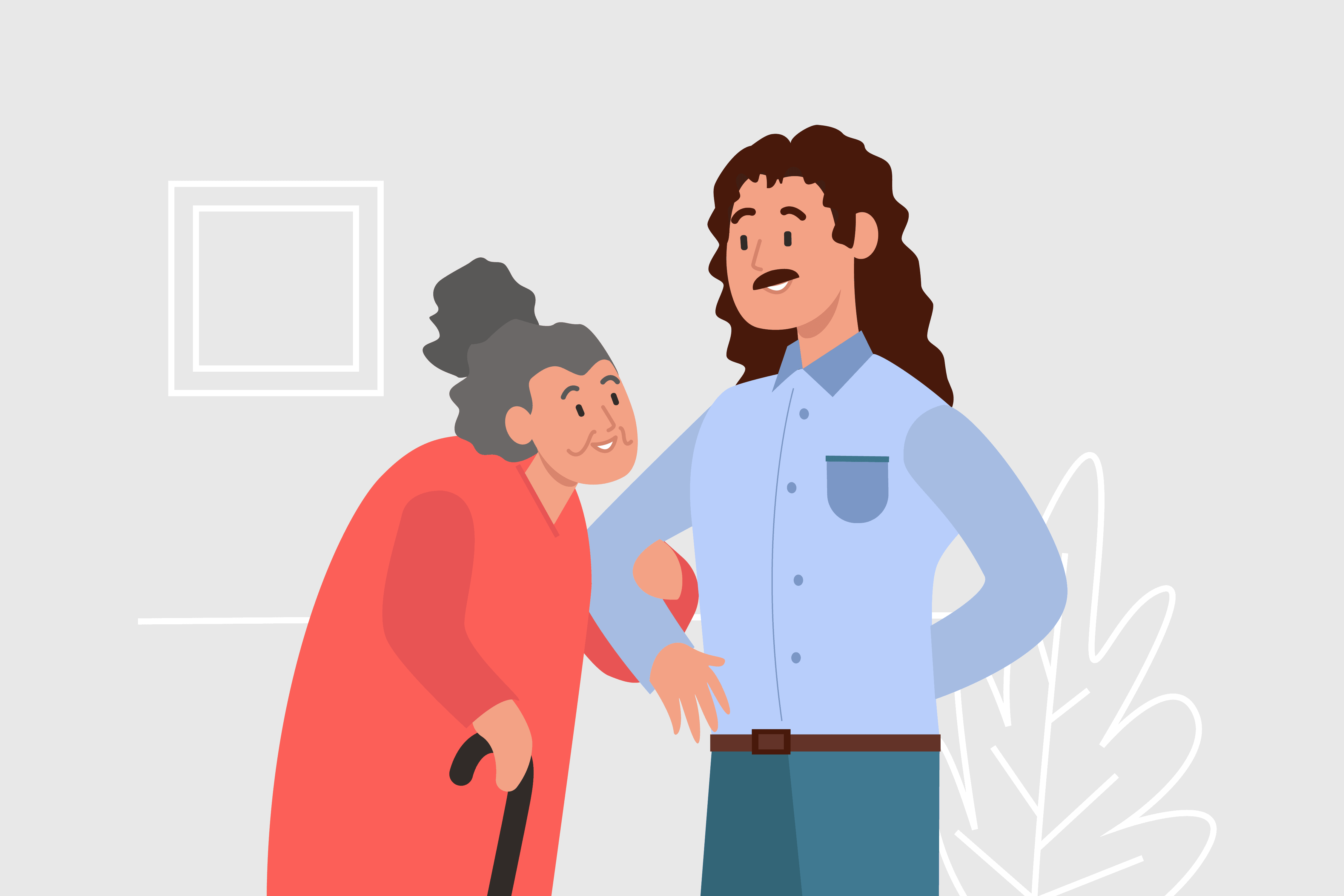Aged care worker job description
Where we source our data
Let's get real. Job information online can often be overly optimistic — conveniently glossing over the raw bits. But when you're making decisions about your future, you need all the facts.
That's why we anonymously surveyed aged care workers about their job, with hopes of getting an honest insight into what it's really like.
While we did our best to ensure respondents were Australians and verified their job titles with proof of employment, we can't guarantee complete accuracy — or that your experiences in the field will reflect theirs. So, we suggest that you take these insights as a guide only and try to talk to people in the field before making an important decision.
Tasks and responsibilities for an aged care worker
Aged care workers provide support and assistance to older members of our communities, either in their own homes or residential care. So, what are the primary job responsibilities aged care workers have?
Aged care worker duties and responsibilities can be:
- Providing companionship, conversation and emotional support to older people
- Helping people with showering, toileting, dressing and other personal care and hygiene needs
- Domestic home care duties such as preparing food
- Assisting clients to get around and stay socially engaged. For example, taking them to appointments, shops or outings
- Teaching clients to use adaptive technologies to maintain their independence
- Ensuring your clients' spaces are clean and free of hazards
How to become an aged care worker
-
Study
To gain a broad understanding and core knowledge for a job as an aged care worker, including the physical and emotional skills you need to support vulnerable people, complete a qualification at a TAFE or Registered Training Organisation (RTO). The most common qualification for aged care work is a Certificate III in Individual Support (CHC33015), but there are a few other course options available to you, so you can explore and decide on a course that fits your lifestyle and gives you the specific training in aged care you need for your career plan.
-
Traineeship
Apply for a traineeship and work as an aged care assistant in a residential facility to gain on-the-ground experience. A traineeship is great because you can earn money while getting your qualifications.
-
Volunteer
Residential care facilities and nursing homes often welcome volunteers to assist with some duties. Offering some of your time to help out can make a big difference to older people and give you some valuable experience and insight into aged care roles. It might even open the doors to a traineeship.
-
Police check
A job in aged care often requires you to have a police check performed. The check is a quick and easy online process and is usually part of the recruitment process.
Pathway options
A role in aged care support is a beautiful career and might be exactly where you want to stay. But, this job can also open doors to more senior positions or other roles in the aged care sector.
Aged care career pathways could be:
Junior
-
Aged care worker
Most common qualification: Certificate III in Individual Support (CHC33015)
-
Residential care worker
Most common qualification: Certificate III in Individual Support (Ageing) (CHC33015)
-
Aboriginal health worker (aged and disability care)
Most common qualification: Certificate III in Aboriginal and/or Torres Strait Islander Primary Health Care (HLT30113)
-
Personal carer
Most common qualification: Certificate III in Individual Support (CHC33015)
-
Home care assistance
Most common qualification: Certificate III in Individual Support (CHC33015)
Mid
-
Aged care nurse
Most common qualification: Diploma of Nursing (HLT54121)
-
Aged care team leader
Most common qualification: Certificate IV In Ageing Support (CHC43015)
-
Aged care activity worker
Most common qualification: Certificate IV in Ageing Support (CHC43015)
Senior
-
Senior aboriginal community care worker
Most common qualification: Certificate IV in Aboriginal and/or Torres Strait Islander Primary Health Care (HLT40113)
-
Care manager
Most common qualification: Advanced Diploma of Community Sector Management (CHC62015)
Explore related qualifications
Do you need qualifications to work in aged care? There are no mandatory qualification requirements for this role, but employers highly favour individuals with prior and relevant training.
To get the aged care qualifications and knowledge to start an entry-level role, explore the following courses and traineeships:
Certificate III in Individual Support (Aged Care)
This qualification prepares workers for roles in the community and residential settings who provide support to people who may require it due to ageing, disability or injury.
This training offers skills in supporting clients physically and mentally, communicating effectively, and empowering older people. These are just a few.
The average duration of the course is 35 weeks but can be up to two years if taken part-time or as part of a traineeship. Delivery can be on campus, online, or both and requires 120 hours of work placement. Australian government fee concessions are available for eligible students.
12 providers offer this course
Reviews
How we collect reviews
Reviews are from Australian workers with this job title or a very closely related one.
Is this your job title?
Share your thoughts and help people decide if this job is right for them.
- All
- Positive
- Negative
Love helping elderly people maintain independence.
What are the best parts of the job?
Being able to help elderly people live at home independently.
What's the most challenging part?
Administration is a challenging part of the role, as well as budgeting for home care packages. It can be difficult to figure out how to effectively use the funds available for the client.
Enjoy helping elderly people and making them comfortable.
What are the best parts of the job?
Making someone comfortable in my care is a really rewarding feeling.
What's the most challenging part?
Death. It sounds morbid but it's a sad reality in this job. It can be difficult to cope with the passing of a client, especially after building a relationship with them.
Enjoy the job itself but staffing issues make it challenging.
What are the best parts of the job?
Providing love and care to elderly women.
What's the most challenging part?
Being understaffed. It means there's not enough time to provide to best care we can.







